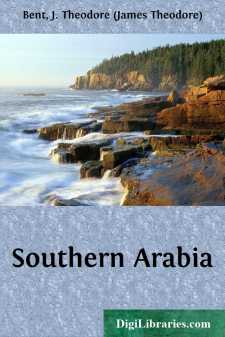Categories
- Antiques & Collectibles 13
- Architecture 36
- Art 48
- Bibles 22
- Biography & Autobiography 815
- Body, Mind & Spirit 144
- Business & Economics 28
- Children's Books 18
- Children's Fiction 14
- Computers 4
- Cooking 94
- Crafts & Hobbies 4
- Drama 346
- Education 58
- Family & Relationships 59
- Fiction 11834
- Games 19
- Gardening 17
- Health & Fitness 34
- History 1378
- House & Home 1
- Humor 147
- Juvenile Fiction 1873
- Juvenile Nonfiction 202
- Language Arts & Disciplines 89
- Law 16
- Literary Collections 686
- Literary Criticism 179
- Mathematics 13
- Medical 41
- Music 40
- Nature 179
- Non-Classifiable 1768
- Performing Arts 7
- Periodicals 1453
- Philosophy 65
- Photography 2
- Poetry 896
- Political Science 203
- Psychology 44
- Reference 154
- Religion 515
- Science 126
- Self-Help 85
- Social Science 83
- Sports & Recreation 34
- Study Aids 3
- Technology & Engineering 59
- Transportation 23
- Travel 463
- True Crime 29
Our website is made possible by displaying online advertisements to our visitors.
Please consider supporting us by disabling your ad blocker.
Southern Arabia
Categories:
Description:
Excerpt
MANAMAH AND MOHAREK
The first Arabian journey that we undertook was in 1889, when we visited the Islands of Bahrein in the Persian Gulf; we were attracted by stories of mysterious mounds, and we proposed to see what we could find inside them, hoping, as turned out to be the fact, that we should discover traces of Phœnician remains.
The search for traces of an old world takes an excavator now and again into strange corners of the new. Out of the ground he may extract treasures, or he may not—that is not our point here—out of the inhabitants and their strange ways he is sure, whether he likes it or not, to extract a great deal, and it is with this branch of an excavator's life we are now going to deal.
We thought we were on the track of Phœnician remains and our interest in our work was like the fingers of an aneroid, subject to sudden changes, but at the same time we had perpetually around us a quaint, unknown world of the present, more pleasing to most people than anything pertaining to the past.
The group of islands known as Bahrein (dual form of Bahr, i.e. two seas) lies in a bay of the same name in the Persian Gulf, about twenty miles off the coast of El Hasa in Arabia.
Bahrein is really the name of the largest of the islands, which is twenty-seven miles long by ten wide. The second in point of size is Moharek, which lies north of Bahrein, and is separated from it by a strait of horse-shoe form, five miles in length, and in a few places as much as a mile wide, but for the greater part half a mile.
The rest of the group are mere rocks: Sitrah, four miles long, with a village on it of the same name; Nebi Saleh, Sayeh, Khaseifa, and, to the east of Moharek, Arad, with a palm-grove and a large double Portuguese fort, an island or a peninsula according to the state of the tide.
It was no use embarking on a steamer which would take us direct from England to our destination, owing to the complete uncertainty of the time when we should arrive, so we planned out our way viâ Karachi and Maskat; then we had to go right up to Bushire, and again change steamers there, for the boats going up the Gulf would not touch at Bahrein. At Bushire we engaged five Persians to act as servants, interpreter, and overseers over the workmen whom we should employ in excavating.
We had as our personal servant and interpreter combined a very dirty Hadji Abdullah, half Persian, half Arab. He was the best to be obtained, and his English was decidedly faulty. He always said mules for meals, foals for fowls, and any one who heard him say 'What time you eat your mules to-day, Sahib?' 'I have boiled two foals for dinner,' or 'Mem Sahib, now I go in bazaar to buy our perwisions of grub,' or 'What place I give you your grub, Mem Sahib?' would have been surprised.
He had been a great deal on our men-of-war; he also took a present of horses from the Sultan of Maskat to the Queen, so that he could boast 'I been to Home,' and alluded to his stay in England as 'when I was in Home.'
Abdullah always says chuck and never throw; and people unused to him would not take in that 'Those peacock no good, carboys much better,' referred to pickaxes and crowbars.
...


